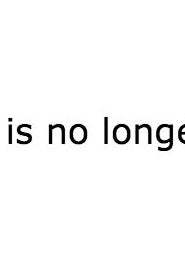
No couple currently on television has endured more hurdles than Ian Gallagher (Cameron Monaghan) and Mickey Milkovich (Noel Fisher) on Showtime's Shameless, now in its fifth season. After unexpectedly coupling up in Season 1, Ian and Mickey — lovingly referred to as "Gallavich" by their very vocal fanbase — spent the next three years locked in constant battle with Mickey's small-minded and rageful father, their own inner demons, and the explosive neighborhood they both call home. Then, at the end of Season 4, "Gallavich" scored a big win as Mickey finally accepted his sexuality, stepped out of the closet, and declared his love for Ian.
But their domestic bliss was somewhat short-lived as Ian quickly discovered he inherited his mother's bipolar tendencies, a revelation that has presented an entirely new set of challenges for the couple in Shameless' current fifth season.
Both halves of TV's most perfectly imperfect couple — Cameron Monaghan and Noel Fisher — along with Shameless writer and executive producer Etan Frankel sat down with BuzzFeed News to discuss the couple's evolution, possible devolution, and how the most iconic "Gallavich" moments were brought to life.

Did you know from the beginning that Mickey would turn out to be the main love interest for Ian?
Etan Frankel: We all saw potential in a Mickey character. The English version [of Shameless] had done a lot with the Mickey character, but we also knew it early on that we would divert from what the English show had done, simply because we had different actors — our actors had different strengths, our writers had different strengths. For the sake of the American show, it had to find its own identity. We could have gone in any direction, honestly. Episode 7, which I wrote, where Mickey and Ian pair up for the first time...
Noel Fisher: We beat each other up in the bedroom! Right!
EF: And then it goes from fighting to fucking. Like any normal relationship.
NF: And then we just continued that for the rest of the show: Fight, fuck, fight, fuck, fight, fuck.
EF: Sometimes you reversed it — fuck then fight, just to shake it up a little bit. But once that episode happened, we all realized there was something super interesting there. I don't think any of us knew where it was going to go. Which, as a writer, is the most exciting thing, because it becomes very organic. You can surprise yourself. And then when you see these two on-screen and what they do with it ... if you don't have two actors who can play the characters the way they are written but also find really subtle moments to show what's going on below the surface, it doesn't give you anywhere to go. Noel and Cameron are so good at keeping the integrity of who these characters were from the beginning but showing you subtle moments where they begin to change along the way. If you watch them in Season 1 and Season 5, they're exactly the same people but they've changed so much. It's been incremental and it's a huge credit to these two guys.
NF: It's also a big credit to the writers, because you give us a lot of space in the script. Giving us the space for those moments.
EF: Thank you. As a writer, when you're gifted with working with actors who can actually do those kinds of things, you want to give them the space. Sometimes you try things and they don't work...
NF: But not with us.
Cameron Monaghan: Never with us.
NF: He's not talking about us.
EF: Never here. As a writer, you feel secure writing a scene knowing they're going to knock it out of the park and they'll find things you didn't necessarily intend, so you find beautiful moments. It's exciting to see those dailies come back and saying, Oh wow, that wasn't even a moment in the script, but they've made it become a moment.
Do you remember talking, from an acting perspective, about anything major in the early days of building this relationship?
CM: Did we?
NF: "I hope Mickey showers more."
CM: Yeah, that was definitely a conversation.
NF: The first couple of seasons he looked like a quasi homeless kid.
CM: Like a zombie. What's funny is Noel was cast [and] we never read with each other, so we're lucky we had good chemistry, because I think a lot of this comes from compatible ways of approaching the material. We gained a little bit of a rapport, a shorthand, by this point, which helps. At the same time, what's really great about working with Noel is I don't always know where he's going to go with a scene. He might throw something new in or approach it from a different angle or find those little idiosyncrasies that [Frankel] mentioned. That gives me an opportunity to throw something back at him, so I think a lot of the discussion is now nonverbal. A lot of it is in the moment, in the feeling.
NF: I think that's exactly right — what we've developed, on the day and with the writers, is that ability to be as present as possible, because we get to throw the ball back and forth to each other, and that's, as an actor, exactly what you want. That has happened really naturally between the two of us.

All things considered, Ian had a very easy coming-out experience. Then, you have the polar opposite of that with Mickey. Noel, what did you like about the early days of playing someone who knew he was gay but was — seemingly — never going to live his truth?
NF: Something I've really loved and appreciated from the get-go is that Shameless is written in a way that goes against any kind of cliché you've ever seen. Particularly with Mickey. I think that was really nice to see, because you've very rarely seen a character like this before where he's the dude in the neighborhood you do not mess with and he happens to be gay. That's a really nice combination, and it makes it real, because people aren't clichés — people have all kinds of layers, and I think that's done naturally in the scripts to begin with. I just showed up and said my lines and now I get to take credit for it.
Few characters on this show behave the way their television archetypes would indicate — Etan, in the writers room, what's been the key to that?
EF: I don't think we've ever done something just to make it different. I think you can get caught in a trap doing that and getting ridiculous. Sometimes when you get to a point where you feel like, I've seen this before, how can we change that? it's about going the complete opposite way, and sometimes you lean into it. You want these characters to be relatable, so sometimes you're flipping it and sometimes you're embracing the humanity of it. They're just a couple who are trying to find a way to make it work. There are so many obstacles in their way — a lot of them within themselves and each other. And those simple scenes to me are sometimes the most effective scenes, because they're basic human emotions.
CM: They're two hard-headed, passionate characters, and when they're this passionate, there's always going to be clashing and drama and all the stuff that goes with it — and that's always an exciting thing to play.
What is it about this relationship that you think makes it so compelling to fans?
NF: Anytime you have characters with a lot of antagonism leveled at them — be that the whole LGBT aspect here or any other kind of circumstance anyone goes through — it's going to create great opportunities to tell good stories and for drama to take place. I think that at the heart, as Etan was saying, it's a story about two people who are just trying to figure out how to be with each other, and that's something that I think is hugely relatable for everyone. That's one of the biggest reasons I'm happy [to be] a part of this story, because I think it's a really lovely lesson that anyone can relate to.
EF: As happy as I am that the gay community has really embraced this storyline, to me, it is much bigger than that, and that's why it's very relatable. I think anyone can find a way into this story and understand obstacles that a couple faces as they try to make things work, whether that's their own beliefs about themselves or bipolar disorder or what have you. Everyone faces obstacles in relationships, and we root for both these guys for different reasons — and we root for them to be together. We've worked really hard to make the [obstacles] organic and real and grounded. On the one hand, it's a really fun relationship to watch, but I hope it's also a very real relationship to watch.

The audience really has a lot of affection for these two characters. What kinds of interactions have you had with "Gallavich" fans?
NF: Some really cool moments I've had have been just walking around on the street and having people run into me and recognize me from the show.
EF: Are they scared of you?
NF: They think I'm a lot tougher than I am. But I've had several people talk to me about how this kind of a story, being told in this way, is kind of a first and how that's very important to a lot of people. As an actor, that's like the pinnacle of what you want to be doing, and Shameless is amazing for letting us be a part of this kind of a story. It's been pretty awesome.
CM: Yeah, right from the start there was really positive reaction, both online and in person. Especially online. That component has really exploded over the last five years. You can't see every single message, but you try to look whenever you can, and it's amazing to see the excitement and the passion people have for it. It's good to know we're not alone in the passion for this work that we're doing. It's the best feeling an artist can have.
EF: We all hope that this isn't a tree in the forest that nobody hears, so when you get feedback that it's really resonating with people the way that you hoped, it's really gratifying.
Looping back around to the idea of obstacles, I want to talk about what I think was the biggest one: Mickey's dad, Terry (Dennis Cockrum). In Season 3, Mickey's dad found them together and then forced Ian, at gunpoint, to watch Mickey have sex with a female prostitute. As hard as that was to watch, you also felt so much empathy and sorrow for this couple. Etan, what do you recall about that sequence of events, since it basically led the characters to Mickey's big coming-out moment in Season 4?
EF: With Mickey especially, there's so many things in the way; there's his dad, there's his family in general, the neighborhood, and, at the end of the day, Mickey's own feelings of identity and whether he can come to grips with who he really is. There are a lot of different obstacles and it was important to parse those out. His father was the most fun one, because it was so visceral and violent and the fun of that character is that he can almost do anything. Well, the Milkoviches in general can almost do anything and you buy it. You can have as much fun as possible and, weirdly enough for this show, still keep it grounded.
CM: And we have to give [Dennis] a lot of credit, he was so phenomenal.
EF: Yes. And if you watch those scenes, to see how these guys play it, they're not playing the ridiculousness of the situation, they're playing the brutal emotion. And it's grisly watching their reactions, so, as crazy as the premise sounds, it comes off in a very specific way because of how they grounded it. They've both had a lot of obstacles on the way. Do they make it? I don't know. I can't say.
CM: You said that this was their biggest obstacle, but I think you're going to see that isn't the biggest obstacle after this season.
NF: Yeah. I think that was the biggest physical obstacle. I think there are harder obstacles to overcome.
CM: Yeah, those were external circumstances that were preventing them from really even coming together in a full way, and now that they are and they're able to be comfortable and open about it, there are new unfortunate circumstances.
Based on what we've seen this season, I'm assuming you're talking about Ian's bipolar disorder. I have to say that I loved how protective Mickey was when he told Fiona [Emmy Rossum] that they were going to take care of Ian themselves because that's what family does. That was a very big moment for him.
NF: Yeah. For me, Mickey's always been one of those characters that will literally do anything for the people in his inner circle. If you're part of that circle, there's nothing he won't do for you. That's a really cool thing about Season 4 and 5. In Season 4, there was this revelation and this evolution within the character becoming himself and standing up for who he is and being able to openly include Ian within that circle. And then Season 5, you'll see the issue that arises is not something he can stand up to. In a weird way, he's really helpless to do anything for one of those inner circle people, and that's not easy for someone like Mickey, who is really protective. He just has to stand and be as centered in the storm as he can, which is not a good feeling.


Mickey is also a character who always seems hell-bent on finding a way to fix the problem, whatever it is. From a writing perspective, it has to be fun to see this character facing something he can't fix.
EF: Absolutely. Especially since he can't fix it with his fists. This is something he can't beat down. Ian has a lot to deal with, regardless of Mickey. I think Ian has some things to figure out about what he's going through in the second half of the season and Mickey has to figure out how to adjust to that, how to be there for him — or how to not be there for him. It's a big challenge.
CM: A word that really stuck out to me was helplessness. Ian is a guy who feels like he wants to be able to have control over his situation and not be reliant on anybody else, even somebody he loves, like Mickey. He wants to be self-sufficient. And then all of a sudden, when you feel like you're not in control over your own mind, that's about as helpless as you can get. It's terrifying to him that he might have to rely on Mickey to save him, because Ian doesn't want to be saved. He wants to be able to save himself. I think that's where a lot of the struggle is going to come from.
Etan, do you have a window of time that characters are allowed to be unequivocally happy for?
EF: Two scenes! [laughs]
CM: We had a good three episodes. I mean, I was cheating on him in the first few episodes, but he didn't know it.
Shameless is a show that gives its characters a lot of wins, but I feel like these characters also always find their way back to the the turmoil, where they exist so well — when you were thinking about this season, what excited you about the possibilities of this new storyline?
EF: It was the idea that there were no more external obstacles. Everything is there for them now if they want it, and that's how we began the season. Even with Svetlana [Isidora Goreshter], they're a happy family — a weird happy family, but it seems to be working. And then the bipolar issue is something Ian has to figure out on his own. If you hear from people who are familiar with this, that takes a long time. Mickey is caught up in trying to figure out how he fits into all that. So it was a different kind of challenge for them, which was the exciting thing as a writer. Now that they have the ability to be together — they're out, they're somewhat proud, and ready to go — what can we throw at them now that's organic and real and a different kind of challenge to the relationship?
One of my favorite moments on the show was Mickey's big coming-out... because, after years of worrying about it, no one cared.
NF: I love that they did that! It was so grounded. There was a really lovely message in the fact that we tend to build things up in our heads to this ridiculously large degree; with Mickey and this particular challenge, there were very real obstacles in the way, very real things. So the actual moment in coming out in the bar — OK, one person did care a lot and beat Mickey up over it, but the [lesson] is that the calm after the storm will always come. You're always better off being who you are, because the storm will end.

What have been some of your favorite moments with these two over the show's run?
EF: In a general sense, I'm always most interested and find myself most affected by the nonverbal moments between the two of them. These are two characters — especially Mickey, but I would say Ian too ... and anyone in this neighborhood — who are not exactly the most verbal people. They don't always know how to express themselves with words. Again, going back to having these two actors, I think you need two people in these roles who can express things with just a look. To me, those are always the most powerful moments: seeing the swirl of emotions in either of these two guys at the end of a scene, knowing all the things that are going through their heads and hearts, those are always the ones that land on me the best.
NF: I loved the episode with Kevin [Steve Howey] in the bar after [Mickey came out]; that was the one where it was really like, no one gives a shit that you're gay. Everyone else has their own problems. There's a profound freedom in that.
CM: There's a couple moments in every season that have been particularly great. You mentioned the coming-out scene, I thought that was great; the scene where they fought in Season 3, the first time they got together in Season 1; there's a lot of great stuff, but I think this season has some really phenomenal moments where you see the love and the passion but, at the same time, the conflict in their different philosophies and personalities that sometimes clash.
NF: It's hard to pinpoint specific moments, but the overall journey is more what I gravitate towards. Just an appreciation. They kind of started on opposite ends, where Ian is the guiding angel in Mickey's life, and that lasts for a long time. And then this season, the role reversal — Mickey is now needing to become that guiding angel for Ian. I think that's really good storytelling, because that kind of journey is super unique and not seen often on television. I'm really looking forward to watching that new position unfold.
CM: In the beginning, Mickey was lost and Ian was always the guy with a purpose, he always knew exactly where he was going, and now Mickey does have a finite purpose and Ian is the one who is starting to feel lost. That's interesting.
NF: And I think that's really true, just in terms of overall relationships, right? We're talking about the universal nature of why people can understand and relate to these characters is because in relationships, it's a constant balancing act, you're always trying to figure out, How do I help? How do they help? I think that's done really well on the show.
Etan, lastly, what are you most excited for the fans to experience as Season 5 continues to play out?
EF: That reversal in this relationship. To see Ian put in a position he's never been in before and to see Mickey put in a position he's never been in before. And how they react to that will be a little surprising, messy, and complicated. I root for these two guys, but hopefully we're doing justice to how complicated this situation is. I hope people will be moved by it.
This interview has been edited and condensed.
